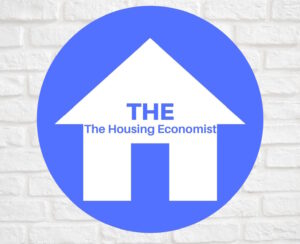AI benefit cap Build More Homes Covid-19 Engagement homelessness housing crisis Housing for all Inequality Innovation lockdown MP Pandemic Policy Change Now Politics Poverty Public Service Rough Sleeping social housing Together we build Universal basic Income welfare reform
Rough sleeping: is defined by the Government as ‘people sleeping, or bedded down, in the open air (such as on the streets, or in doorways, parks or bus shelters); people in buildings or other places not designed for habitation (such as barns, sheds, car parks, cars, derelict boats, stations, or ‘bashes’)

The pandemic has brought a number of challenges in the last 8 weeks. Local Authorities and their partners have met the challenge of housing all rough sleepers and those at risk of rough sleeping. This has resulted in 5400 single people being housed in hotels from streets of these 90% were already known to Local Authorities with 83% of them being male and aged 26 years or older. There is a small female cohort of 17% female. In the rough sleepers snapshot statistics in Autumn 2019 should that 4266 rough sleepers where counted in one night.

As of the 2nd May 2020 the government have tasked Dame Louise Casey with heading up a specialist task force that will work with Local Authorities ensure that were possible rough sleepers are helped to secure accommodation that is sustainable and enables them to remain of the streets. The government has provided £3.2 million pounds of emergency funding to help local authorities to provide support to rough sleepers and those who are vulnerable.
The pandemic is presenting an opportunity to help rough sleepers gain sustainable accommodation and remain off the streets for good, What the pandemic has meant that even some of the most entrenched rough sleepers have accepted hotel accommodation to self -isolation. There is an opportunity for the outreach teams, housing options services, mental health services , drugs and alcohol services. There will be many challenges, however there have been number of successful programmes and initiatives that have been piloted and evaluated have good outcomes such as Rough Sleeper Initiative , Somewhere Safe to Stay, Housing First.
The Government in its Rough Sleeper Strategy sets out how it would tackle rough sleeping and this includes funding, The vision is to halve rough sleeping by 2022 and ending it by 2027. The government in its Rough Sleepers Strategy Delivery Plan sets out the next steps and shows the key milestones for 61 commitments, please see document below.
Once the lockdown is finished, rough sleepers should not go back to the streets. Just like the Nightingale hospitals built, a similar rapid solution should be implemented for rough sleepers, Where they can be better accommodated with the required support and services all under one roof. Rough sleepers should be triaged and provided with a wrap around service with all the professional working together. The lead professional being where the overriding need arises, an example would be a rough sleeper with substance abuse, underlying mental heath issues not being addressed and housing. The lead professional in this case would be substance misuse, followed by mental health once that has been addressed and then housing will accommodate whilst the rough sleeper is engaging and linked in with the relevant services.
Cost Of Rough Sleeping
The cost of rough sleeping on average £4298 per person to NHS services, £2099 per person on mental health services and £11991 per person in contact with the criminal justice system. It makes economic and financial sense that rough sleepers are given meaningful pathways and options of the streets and given the cost to society of rough sleeping is in the region of £20128 per person, per year, where as an intervention costs are on average £1426.
Next Steps to housing 5400 rough sleepers:

- Chain verified rough sleeper to be exempted from the shared room rate if they are under 35 years old.
- Chain verified rough sleepers exempted from he benefit cap for 24 months.
- Use social impact bonds to secure accommodation,
- Referrals for assessment to mental health services can made by any professional working with rough sleepers. Assessment should take 14 days from when the referral is received.
- Created dedicated mental health services for rough sleepers .
- Rough Sleepers to bond to secure training, education and life skills to the value of £4000.
- Ongoing support for 12 months with a named support worker.
Will the government house all 5400 rough sleepers?





